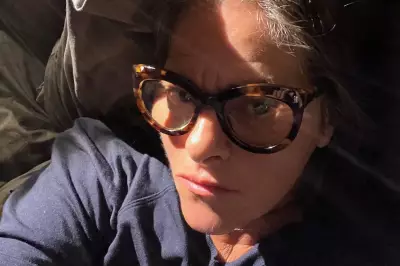
Hollywood is experiencing a dramatic shift in how intimate scenes are filmed, with some of the industry's biggest names openly rebelling against the use of intimacy coordinators. Established stars including Jennifer Lawrence, Gwyneth Paltrow and Jennifer Aniston are pushing back against what they describe as an overly clinical approach to filming sex scenes, arguing it stifles authentic on-screen chemistry.
The veteran rebellion
According to industry research, sexually explicit content in top-grossing films has dropped by nearly 40 percent since the early 2000s. This decline has been driven by shifting actor comfort levels, evolving audience preferences and the rise of intimacy coordinators who carefully choreograph physical contact on set.
While working with coordinators became standard practice following the #MeToo movement, a growing number of veteran actors say the system can feel restrictive and artificial. Gwyneth Paltrow, 52, recently revealed she asked the intimacy coordinator to "step a little bit back" during steamy scenes with Timothée Chalamet for the upcoming A24 film Marty Supreme.
"I was like, 'Girl, I'm from the era where you get naked, you get in bed, the camera's on,'" Paltrow told Vanity Fair. "I would feel, as an artist, very stifled by that."
Jennifer Aniston expressed similar sentiments while promoting The Morning Show, where she filmed intimate scenes with Jon Hamm. When producers offered to bring in an intimacy coordinator, the 56-year-old Friends alum admitted she didn't even know what the term meant.
"They said, 'Where someone asks you if you're OK,' and I'm like, 'Please, this is awkward enough!'" Aniston told Variety. "We're seasoned - we can figure this one out."
Mixed experiences across generations
Oscar winner Jennifer Lawrence also revealed she skipped an intimacy coordinator while shooting sex scenes with Robert Pattinson for the psychological drama Die My Love. The 35-year-old actress said she felt completely safe with her co-star, eliminating any need for extra supervision.
"We did not have [an intimacy coordinator], or maybe we did but we didn't really," Lawrence said on the Las Culturistas podcast. "I felt really safe with Rob. He is not pervy and very in love with [his partner] Suki Waterhouse."
However, not all actors share this perspective. Florence Pugh admitted to having both positive and negative experiences with intimacy coordinators. While she praised "fantastic" coordinators for helping understand "the dance of intimacy," she also recalled working with a "s***" coordinator who made everything "awkward" and "wasn't helpful."
The divide often appears generational, with younger performers who grew up in a culture that openly discusses consent and boundaries generally embracing the role, while veteran actors from an era where intimate scenes were handled more informally sometimes feel over-managed.
The expert perspective
Award-winning intimacy coordinator Yehuda Duenyas weighed in on the growing debate, suggesting that actors' frustrations might be misdirected. He argued that when done correctly, intimacy coordination should feel invisible and collaborative rather than mechanical.
"If an intimacy coordinator works in a rigid or intrusive way, the process can feel stifled," Duenyas told The Daily Mail. "That criticism points to an implementation issue, not an existential flaw in the role."
Duenyas compared intimacy work to stunt coordination, noting that nobody improvises dangerous physical sequences - they're planned, rehearsed and executed precisely. He believes sex scenes deserve the same careful attention.
"Safety and authenticity are not opposites," he emphasised. "The idea that you lose creative freedom when you protect consent comes from a misunderstanding of how craft works."
Meanwhile, celebrated intimacy coach Ita O'Brien, who created the Intimacy On Set Guidelines, highlighted the emotional toll actors faced before the role became standard. Without coordinators, she explained, actors were often too afraid to speak up out of fear of being labelled difficult.
Several high-profile actors have praised intimacy coordinators, including Oscar-winner Olivia Colman, who repeatedly requested O'Brien on jobs. BAFTA winner Michaela Coel even dedicated her 2021 award for I May Destroy You to O'Brien, thanking her for "creating boundaries so we can make work about exploitation without being exploited."
As Hollywood continues to navigate this complex landscape, the debate highlights the ongoing tension between artistic freedom and professional safeguards in an industry still reconciling with its past while building a more equitable future.






